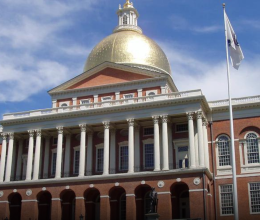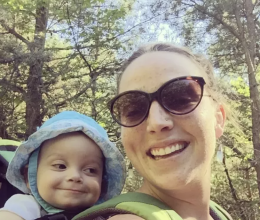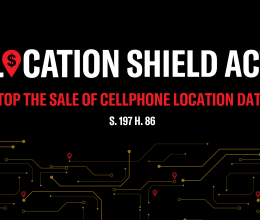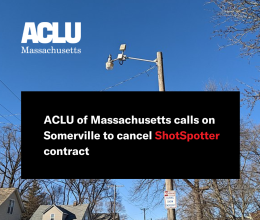
The following op-ed was written by Kade Crockford, Technology for Liberty director at the ACLU of Massachusetts, and published in the Boston Herald on December 9, 2016.
On Dec. 5, the Boston City Council’s Committee for Public Safety and Criminal Justice met to discuss a nearly $14 million federal Homeland Security grant, including a $300,000 down payment on a $1.4 million social media surveillance system for the Boston Police.
Residents crowded the hearing room to testify against the plan. They raised concerns about racial profiling, policing of political dissent, and the failure of dragnet surveillance to keep us safe. They spoke out against a system that would chill online speech and association, at precisely the moment when our democracy needs people willing to speak truth to power.
There are plenty of reasons to think the BPD shouldn’t use $1.4 million of taxpayer money to buy a deep-web analysis software program enabling its intelligence officials to build dossiers on people and groups.
Primary among those is that the BPD, like the FBI, no longer requires its analysts to suspect someone is involved in a crime before collecting, retaining, or even sharing information about them.
This is a lesson we should have learned. In the 1950s and ’60s, J. Edgar Hoover’s FBI secretly mobilized to destroy leftist, anti-war, and black liberation movements. These operations were known inside the bureau as the counterintelligence program, or COINTELPRO for short. When U.S. Sen. Frank Church led a congressional investigation that revealed the depth and breadth of the FBI’s domestic spying, the American public and our elected leaders moved to rein in the FBI’s abuse of power.
In 1976, U.S. Attorney General Edward Levi promulgated “Domestic Investigations Operations Guidelines,” requiring the FBI to have a “criminal predicate” before opening an investigation into someone. Simply put: Agents had to suspect that a person being investigated was involved in criminal activity. The Levi Guidelines were designed to stop the FBI from engaging in COINTELPRO-like activities. For decades, they helped to protect civil liberties and advanced public safety.
But then 9/11 happened, and U.S. Attorney General John Ashcroft dismantled the protections set forth in the Levi Guidelines. Although the criminal predicate requirement did not contribute to 9/11 — FBI officials had information about the hijackers prior to the attack — Ashcroft stripped the guidelines of the all-important “criminal predicate” check on abuse of power.
But the weakening of checks and balances on domestic surveillance didn’t occur only at the federal level. The feds increasingly turned to state and local law enforcement agencies to act as the intelligence and espionage arms of the federal government. Here in Boston, too, the gloves came off.
To read the full article, please click here.
Learn more about the Boston Police Department's proposal to monitor social media.







